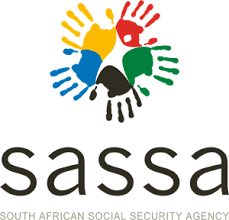sassa latest news 2024-2025
sassa latest news 2024-2025

Many SASSA Grants are given to vulnerable South Africans by the South African Social Security Agency, or SASSA, to help raise their standard of living. The Social Relief of Distress Grant (R350 grant), the SASSA Temporary Disability Grant, the SASSA Disability Grant, the SASSA Child Support Grant, and many others are among the SASSA Grants.
R350-a-month grant extended until March 2024
Godongwana stated in his medium-term budget policy statement that the SRD grant was introduced in May 2020 as a temporary measure to address the needs of those who were most at risk and were impacted by lockdown measures. Since then, it has been prolonged numerous times. There are ongoing discussions about the grant’s future, which involve very difficult trade-offs and financial choices.
However, since April, millions of people who previously received the grant have not been receiving it due to a sharp decline in approvals by the South African Social Security Agency.
Both applications and approvals have increased since March, but remain below the Department of Social Development’s 10.5 million caps. According to SASSA, the number of applications was slightly more than 12 million in August, with 7.4 million approvals, in response to a parliamentary question.
The DSD imposed a budget cap of 10.5 million approvals in March. The DSD budget for the R350 grant in 2022/23 was R44 billion, with 10.5 million grant payments per month. This is despite the DSD’s own figures showing that 13.4 million people have no income and 18.3 million live below the R624 per month food poverty line.
The eligibility threshold for the grant was raised to R624 per month in August after civil society organization the Black Sash, represented in court by the Centre for Applied Legal Studies (CALS), challenged DSD Minister Lindiwe Zulu’s “unfair” and “arbitrary” regulations that excluded millions of beneficiaries from receiving the grant.
He claimed that the strict bank verification requirements, the R350 means test threshold that disqualified many potential beneficiaries, and the fact that applications could only be submitted online were to blame for the sudden drop in approvals.
Hoodah Abrahams-Fayker, National Advocacy Manager at Black Sash, told GroundUp that despite the changes in the eligibility criteria, there was still evidence that “the application of the regulations is still excluding millions that require the grant, and it is by design.”
- “There are still millions that are needing social assistance,” said Abrahams-Fayker.
The Black Sash, the IEJ, the CALS, and other civil society organizations have been urging the government to make the grant permanent and raise it to at least R624.
The Black Sash said in a press release today that it had received a deluge of calls from people asking how to show their eligibility.
“It is disappointing that this grant has not reached those who need it the most because of administrative challenges, stringent eligibility criteria, outdated databases resulting in inaccurate rejections, delays with payment and delays with reconsiderations and appeals,” the Black Sash said.
- Finance Minister Enoch Godongwana announced on Wednesday that the R350 Social Relief of Distress (SRD) Grant will be extended for another year, until March 2024.
Related Links
sassa food vouchers 2024 application
sassa srd relief grant
sassa r350 relief grant
sassa grant application 2024
sassa grant september 2024
social distress grant application
application sassa
sassa grants for september 2024
social relief of distress grant application
sassa grant 350 application online
For more info, click here